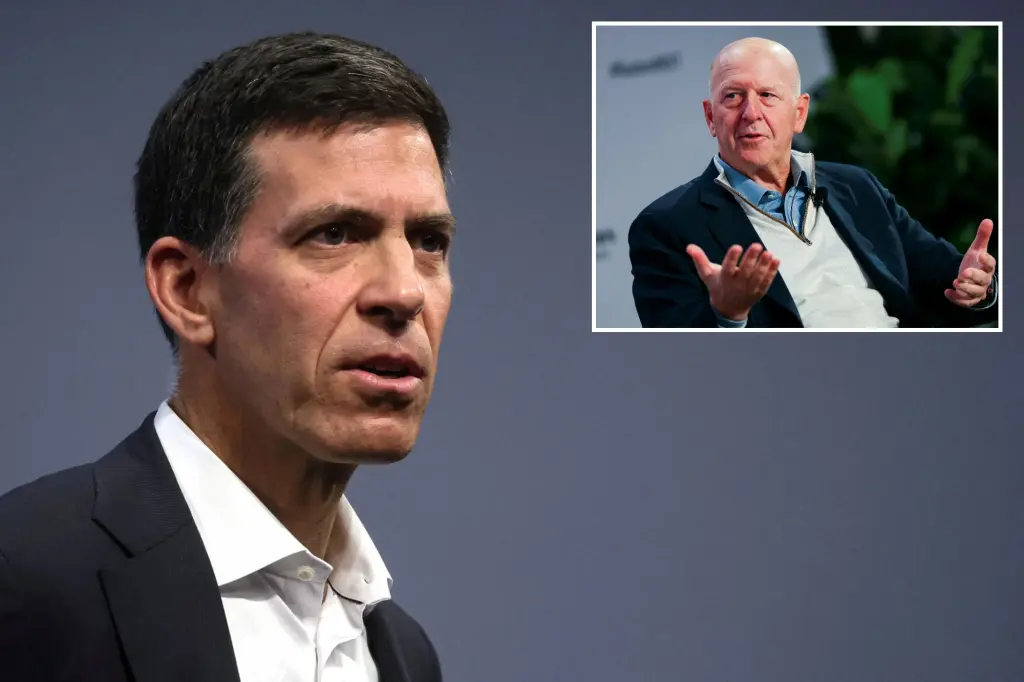Goldman Sachs COO Waldron Offloads $13.6 Million in Company Stock
In a significant financial maneuver, Goldman Sachs COO John Waldron recently sold $13.6 million worth of company stock, raising eyebrows in the financial community. This stock sale has sparked interest not only among investors but also analysts who are keen to understand the implications of such a move. With the stock market constantly shifting, the motivations behind high-profile sales like Waldron’s warrant a closer look.

Goldman Sachs, known for its influential role in global finance, is led by a team of executives who often make headlines for their strategic decisions. Waldron’s recent stock sale raises questions about the company’s market trajectory, the timing of such transactions, and what it means for both the firm and its shareholders. Understanding these dynamics is crucial for investors and analysts alike.
Understanding the Context of Waldron’s Stock Sale
To fully grasp the implications of Waldron’s $13.6 million stock sale, it is essential to understand the broader context within which this transaction occurred. The financial landscape in which Goldman Sachs operates is characterized by volatility, regulatory changes, and shifting market dynamics. This context plays a crucial role in interpreting the motivations behind such significant stock sales.
The Role of the COO in Financial Institutions
The Chief Operating Officer (COO) of a financial institution like Goldman Sachs has a multifaceted role that includes overseeing day-to-day operations, implementing strategic initiatives, and ensuring compliance with regulations. Waldron, who has been with Goldman Sachs since 2000, has held various leadership positions, giving him a deep understanding of the company’s operations and market conditions.
Given his extensive background, Waldron’s decision to sell a substantial amount of stock may indicate more than just personal financial planning. It could also be reflective of his assessment of the company’s future performance and his strategic positioning within the market.
The Details of the Stock Sale
Waldron’s stock sale involved approximately 100,000 shares of Goldman Sachs, executed at an average price of $136 per share. This transaction is part of a broader trend where executives liquidate portions of their holdings, often for reasons that range from personal financial planning to diversification of assets.
Timing and Market Conditions
The timing of Waldron’s stock sale comes amid fluctuating market conditions. Goldman Sachs has faced a series of challenges, including regulatory scrutiny and evolving market demands. By selling a significant amount of stock now, Waldron might be positioning himself favorably in anticipation of potential downturns or shifts in the financial landscape.
Investor Reactions and Market Impact
Investor reactions to Waldron’s stock sale have been mixed. Some view it as a prudent move, suggesting that Waldron is taking advantage of favorable stock prices before potential declines. Others interpret it as a sign of uncertainty regarding Goldman Sachs’ future performance. This divergence in opinion highlights the complexity of interpreting such high-profile financial decisions.
Implications for Goldman Sachs and Its Shareholders
Waldron’s stock sale carries significant implications for Goldman Sachs and its shareholders. Executive stock sales can influence investor sentiment and market perception. When a COO sells a substantial amount of stock, it can raise questions regarding the company’s future prospects and leadership confidence.
Potential Signals to the Market
Waldron’s decision could signal a variety of messages to the market. For one, it might indicate that he believes the stock is currently overvalued, prompting him to liquidate his holdings while prices are high. Conversely, it could also reflect personal financial needs or diversification strategies unrelated to the company’s performance.
Impact on Stock Performance
Historically, executive stock sales can lead to short-term fluctuations in stock prices. Investors often interpret these sales as a lack of confidence in the company’s future, which can lead to increased volatility. However, it is essential to recognize that not all stock sales are indicative of negative sentiment. Many executives, including Waldron, have legitimate reasons for selling shares.
Key Takeaways from Waldron’s Stock Sale
- Waldron sold $13.6 million worth of Goldman Sachs stock, raising questions about motivations.
- The transaction involved approximately 100,000 shares at an average price of $136.
- Investor reactions to the sale have been mixed, with concerns about market implications.
- Executive stock sales can influence stock performance and investor sentiment.
- The broader financial context plays a crucial role in interpreting such transactions.
Frequently Asked Questions (FAQs)
1. Why did John Waldron sell his Goldman Sachs stock?
While the specific reasons for Waldron’s stock sale are not publicly disclosed, it could be related to personal financial planning, diversification of assets, or an assessment of the company’s market position.
2. How does Waldron’s stock sale affect Goldman Sachs’ stock price?
Executive stock sales can lead to short-term fluctuations in stock prices, as they may signal investor sentiment about the company’s future. However, the impact varies based on broader market conditions and investor perceptions.
3. Is it common for executives to sell company stock?
Yes, it is relatively common for executives to sell company stock. They often do so for various reasons, including personal financial needs, tax obligations, or portfolio diversification.
4. What are the implications of stock sales for shareholders?
Stock sales by executives can create uncertainty among shareholders, potentially leading to decreased confidence in the company’s performance. However, it is essential to assess these transactions within the broader context of the company’s overall strategy and market conditions.
5. How can investors interpret executive stock sales?
Investors should approach executive stock sales with caution and consider the context, timing, and reasons behind the transactions. Not every sale indicates a lack of confidence in the company; personal circumstances often play a significant role.
Conclusion
Goldman Sachs COO John Waldron’s recent decision to offload $13.6 million in company stock has generated considerable discussion within the financial community. As investors and analysts dissect the motivations behind this sale, it becomes clear that executive stock transactions are complex and multifaceted. Understanding the broader financial landscape, market conditions, and individual circumstances is crucial for drawing informed conclusions about the implications of such moves.
As the financial world continues to evolve, staying attuned to the actions of key executives like Waldron will remain essential for investors seeking to navigate the intricate landscape of stock performance and corporate strategy. Whether this stock sale will have lasting implications for Goldman Sachs and its shareholders is yet to be determined, but it undoubtedly serves as a vital indicator of the dynamics that shape the financial markets.
📰 Original Source
Este artigo foi baseado em informações de: https://www.investing.com/news/stock-market-news/goldman-sachs-coo-waldron-sells-about-136-million-in-stock-4217492


